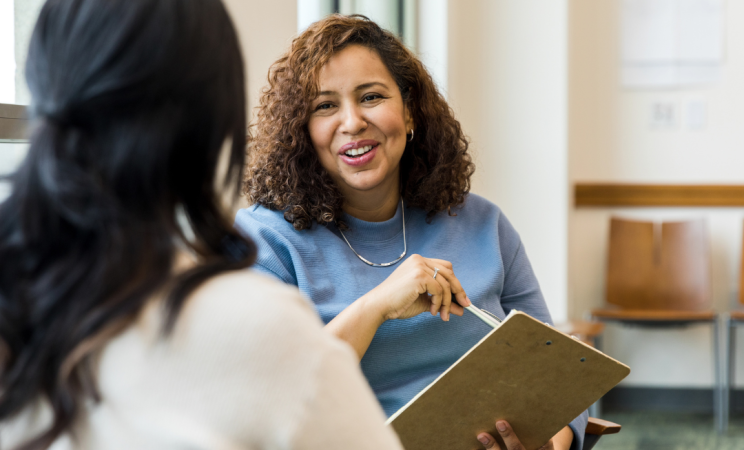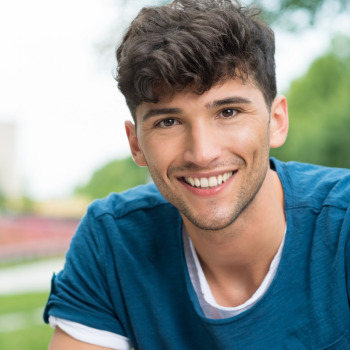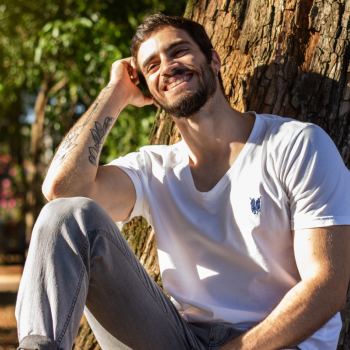The Key to Ten Years of Medical Legal Partnership Success

This article appears in the Fall 2023 issue of the Management Information Exchange (MIE) Journal. Subscribers can read the full issue at mielegalaid.org/journal.
In 2023, Philadelphia Legal Assistance (PLA) celebrated the 10-year anniversary of our innovative Medical Legal Community Partnership (MLCP). PLA’s MLCP brings together legal professionals with healthcare providers in Philadelphia health centers and hospitals to tackle socio-legal barriers faced by clients and improve patients’ social determinants of health. Starting at just one Philadelphia Department of Public Health center in 2013, our MLCP is now present in 16 health centers and hospitals throughout the city.
Our comprehensive approach addresses a range of legal issues, often assisting clients with multiple cases. For instance, a client seeking help with medical bills might discover they qualify for increased insurance coverage, Supplemental Nutrition Assistance Program (SNAP) benefits, and reduced water bills. By alleviating debts, supporting basic needs, and ensuring continuous health coverage, our aim is to enable clients to attend medical appointments regularly, fostering healthy lives for themselves and their families while mitigating the adverse effects of toxic stress.
I was the first lawyer to run the MLCP program when we launched in September of 2013. How did this program come to be, and how might a legal aid leader learn how to create a Medical Legal Community Partnership in their community? First, there had to be someone with a vision.
Maggie Eisen was working for the Health Federation of Philadelphia and was tasked with meeting with lawyers and legislators to check on the progress of critical HIV testing legislation. In one meeting, she heard some lawyers discussing the concept of medical-legal partnerships. As a student pursuing her Master of Law and Social Policy at Bryn Mawr College, Maggie aspired to meld her passion for law and social policy into a singular program. A medical-legal partnership felt like the perfect fit, and she immediately went to work to see if she could make the program happen in Philadelphia.
Maggie received a Stoneleigh Emerging Leader Fellowship to pursue her idea, but people warned her that working with the Philadelphia Department of Public Health (PDPH) might be too hard. It was a large organization with a lot going on already; she might have a hard time convincing them that this was a need that she could help them meet. She met with the director of the City’s health centers. Through their conversations, she was able to convince him that a medical-legal partnership was needed and that he should give her an opportunity to implement one in Philadelphia. She was granted permission to do a needs assessment, and the director at PDPH Health Center 3 agreed that their site would be a good fit.
Once she was on the ground at Health Center 3, she had to do a lot to convince the doctors that this was about offering more help to patients, that this was not about medical malpractice or finding any fault with their work. She took the approach of interviewing everyone who would speak to her who worked at Health Center 3 to see if they felt that a Medical Legal Partnership would be good for the clients in their care. As she interviewed doctors, nurses, assistants, and social workers, Maggie found that employees started to see her vision. Maggie was able to accumulate people at the health center who would become champions of this kind of partnership.
Maggie also interviewed and surveyed patients in the health center. She used survey tools to ask about different social and health needs that had legal implications. The needs assessment proved that patients needed legal help. They were without benefits, living in financial precarity, and struggling to manage their health with the stress of poverty. Now Maggie needed to figure out how to get that legal help into Health Center 3.
She shopped the idea of a medical legal partnership to other legal aid organizations in Philadelphia. Everyone turned her down, except for Philadelphia Legal Assistance’s Executive Director, Anita Santos-Singh. Anita saw the innovative vision of the project, and at that moment was looking to diversify Philadelphia Legal Assistance’s offerings. Anita was in. She also recognized the importance of centering the voices and needs of the community that the medical legal partnership would be located in, and resolved to add “Community” into the project’s title to create our signature three-way name: the Medical Legal Community Partnership (MLCP). Now, all they needed was a lawyer willing to do this work.
“We needed to find a unicorn of an attorney who would be willing to reach outside of their comfort zone, tap their colleagues when they feel out of their depth, and make it a very collaborative approach,” Maggie explained when asked how they went about finding an attorney to run the project. That’s where I came in.
I had previously worked with Anita at Philadelphia Legal Assistance. In 2013, I had just recently moved back to Philadelphia and was looking into ways I could start working with legal aid again. Anita thought that if I were willing, I would be a great person to help get the brand new medical legal partnership off the ground.
Starting in September of 2013, I spent the first year running the MLCP out of Health Center 3 on a completely volunteer basis. Maggie worked to find law students who would help staff the site and assist me in getting the program working. We ended up working with Drexel Law Students who proved super willing to dive into this kind of work and get their hands dirty. A scrappy, but needed program like the MLCP required this kind of attitude to get off the ground.
We started offering legal assistance to patients slowly, mainly working on public benefits issues. Gradually, we started expanding to utility, consumer, and landlord-tenant issues. As we picked up knowledge about the most common problems that patients at Health Center 3 were facing, we took on as many of these issues as we could handle. The work was hard, and we worked in a tiny little office that we lovingly and jokingly called “the clown car.” If a patient came to us with an issue we were uncertain about, we tapped into our networks to find the best solution.
PLA was then awarded a Legal Services Corporation Innovation award, as well as a grant from Philadelphia Health Partnership. That award was enough to take the program from being all-volunteer to an established partnership with employees. That recognition also enabled us to make our first expansion to Health Center 4. Ten years later, we are embedded in 16 health centers and hospitals throughout the city.
The first lesson I learned was that the only way we could succeed in implementing our MLCP was through careful relationship-building — not solely with patients, but also with the health center staff. What I learned quickly is that other legal aid groups had come in and out of the health centers to offer help over the years, and then they would just kind of disappear out of the health center. Health center staff were ambivalent about putting a lot of work into establishing a relationship with a group that they assumed would just disappear. Developing good relationships with the medical providers, clerical staff, and even the security guards was essential to getting established in a new health center.
I learned that working embedded into a health center was very different than working at the main office of Philadelphia Legal Assistance. The outcomes were different. The population was different. And they still are, 10 years later. Our MLCP advocates meet with a population that may never have come into contact with the main office to access legal services. This was especially true for the immigrant population. They feel most comfortable in their neighborhood where people speak their language. They don’t know as much about what systems exist to offer them aid. The greatest thing the Medical Legal Community Partnership has done is reach immigrant communities that previously didn’t know our services existed.
Early on, there was an incredibly sick individual with an illness that the primary care team could not diagnose. His doctor wanted to send him to a specialist, but the patient did not have insurance. Many immigrants have a hard time successfully applying for Medicaid. So, the doctor referred him to us to try to get him the help he needed.
Up until this point, this doctor had been resistant to referring patients to the MLCP. After reviewing the patient’s application, we were able to help the patient get Medicaid and he was able to see a specialist, receive a diagnosis, and obtain life-saving treatment. The patient was able to get the help he needed, and we proved to the doctor the value of our Medical Legal Community Partnership. We had his trust, and thus the trust of his patients.
To really take a holistic approach and make the program work, these warm hand-offs are the way to go. When a trusted provider walks a patient down the hall to us, the trust they have with their provider is handed directly to us. That is how you build strong and lasting relationships with both providers and with patients. Most patients live in the same neighborhood as their health center, and once you develop trust with a patient, they keep coming back to you. We have so many repeat clients that you feel like their family attorney. People stop by all the time just to see me and send me pictures of their families as they grow.
The second crucial skill we applied to make this program work was flexibility. We had to be committed to a flexible model that adapted to the needs of each particular health center. We had to meet the unique needs of providers and patients as they changed day-to-day and prove our value to each health center and its patients. We had to never be afraid to ask hard questions, make flexible plans, and work creatively to provide the help patients needed. From there we were able to demonstrate success stories and build our reputation.
Philadelphia Legal Assistance has demonstrated an ability to leverage this reputation and build trust as a cornerstone in the expansion of its MLCP. We diligently focused on fostering trust within this network of health centers and medical partners. The program’s commitment to flexibility, cooperation, and impactful outcomes resonated deeply with potential supporters and collaborators. Donors were drawn to the MLCP’s proven dedication to addressing systemic barriers at the intersection of legal and medical needs.
Buoyed by growth in support, our MLCP has experienced a rapid expansion, and we are now embedded into 16 sites. The program’s growth was propelled by creating strategic and lasting partnerships with other organizations in the city committed to advancing innovative ways to improve the health outcomes of patients.
For instance, after a chance meeting between representatives from PLA’s MLCP and Esperanza Health Center at a national MLP conference, our important partnership with Esperanza Health Center was established. This allowed us to tap into funding to assist people in recovery from opioid use disorder by establishing an MLCP to serve Medication-Assisted Treatment (MAT) patients at Esperanza Health Center. Around the same time, regulatory shifts, such as the approval of funding for MLPs as enabling services by HRSA (Health Resources and Services Administration), further facilitated MLCP’s growth. PLA took this opportunity to strategically utilize this funding to launch a new MLCP site at the Girard Medical Center location.
The MLCP’s expansion also occurred through collaborations and goal alignment with healthcare entities. An instrumental meeting with the Director of Ambulatory Services for the PDPH, was facilitated by the head of the PA Health Law Project. This encounter led to the allocation of opioid funds for MLCP’s services to the MAT population and beyond, benefiting a wider range of patients. This strategic collaboration highlighted the program’s ability to adapt to meet evolving healthcare priorities — the third key component of our MLCP’s success.
The journey of expansion continued as the MLCP engaged with other medical and health organizations. Collaborative efforts with Health Partners Plans (HPP), a Medicaid Managed Care Organization (MCO), paved the way for the establishment of MLCP projects at Maria de los Santos Health Center and Temple Health sites. The program’s scope widened further when the MLCP entered into a contract with PDPH to provide services across multiple ambulatory health centers, a significant milestone achieved after persistent efforts.
From our humble beginnings at Health Center 3 to recent expansion across various hospitals, Philadelphia Legal Assistance’s MLCP showcases how the program’s growth was driven by dedicated individuals, strategic partnerships, evolving healthcare trends, and the pursuit of better healthcare outcomes through legal assistance.
So, what are the key takeaways for establishing and growing a successful medical-legal partnership? The success of our MCLP began with visionary advocates who identified the need and sought out collaborative partnerships. We had those leaders in Maggie and Anita. Developing trusting relationships with health center providers and staff, through transparent communication and consistent engagement, formed the foundation of our MLCP. Patient-centered care, where warm hand-offs from medical professionals to legal advocates establish a bridge of trust, is critical. Flexibility and adaptability are essential to navigate evolving challenges and address changing needs. Demonstrating value through tangible outcomes, such as improved patient access to vital resources, solidifies a program’s reputation. Seeking out new, creative funding opportunities for strategic expansion was an absolute necessity.
Ultimately, every single one of these lessons proved invaluable in getting PLA’s MLCP to where it is today, with more than 20 legal advocates embedded in 16 health centers and hospitals throughout the City of Philadelphia, providing life-changing legal services to hundreds of Philadelphians every year.
Cynthia Haskin is a Senior Attorney in the Medical Legal Community Partnership of Philadelphia Legal Assistance. In addition to the Medical Legal Community Partnership, she has worked in the areas of family advocacy, public benefits, and farmworker rights at Philadelphia Legal Assistance and Community Legal Services. Cynthia may be reached at chaskin@philalegal.org.
Boston Gordon has served in Communications at Philadelphia Legal Assistance since 2021. He has worked for non-profits in Philadelphia for over eight years. Boston is also a poet and a writer. Boston may be reached at BGordon@philalegal.org.

